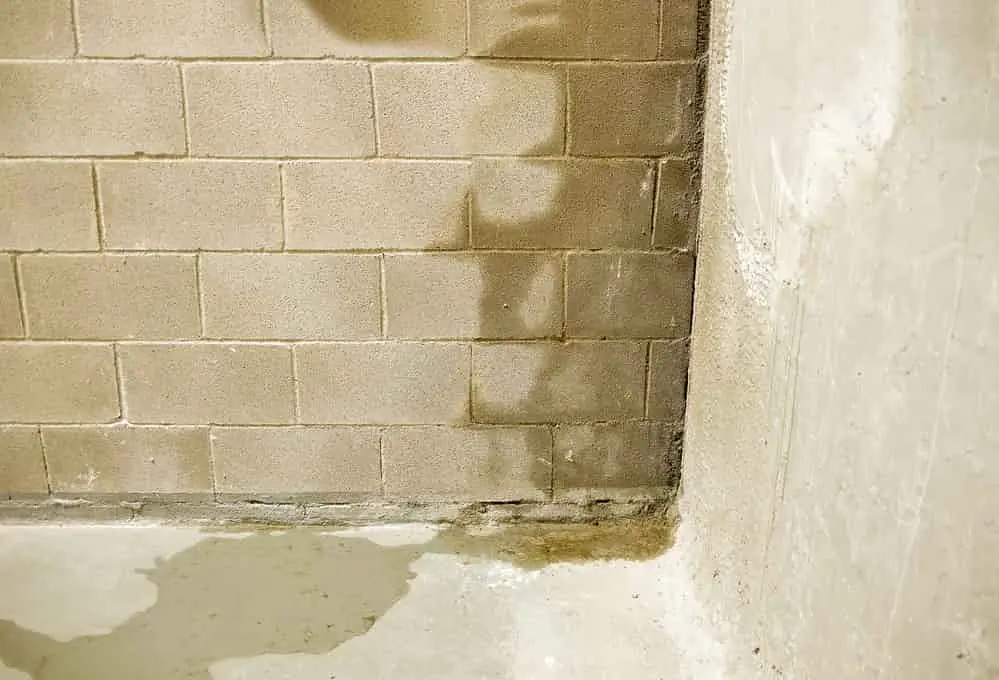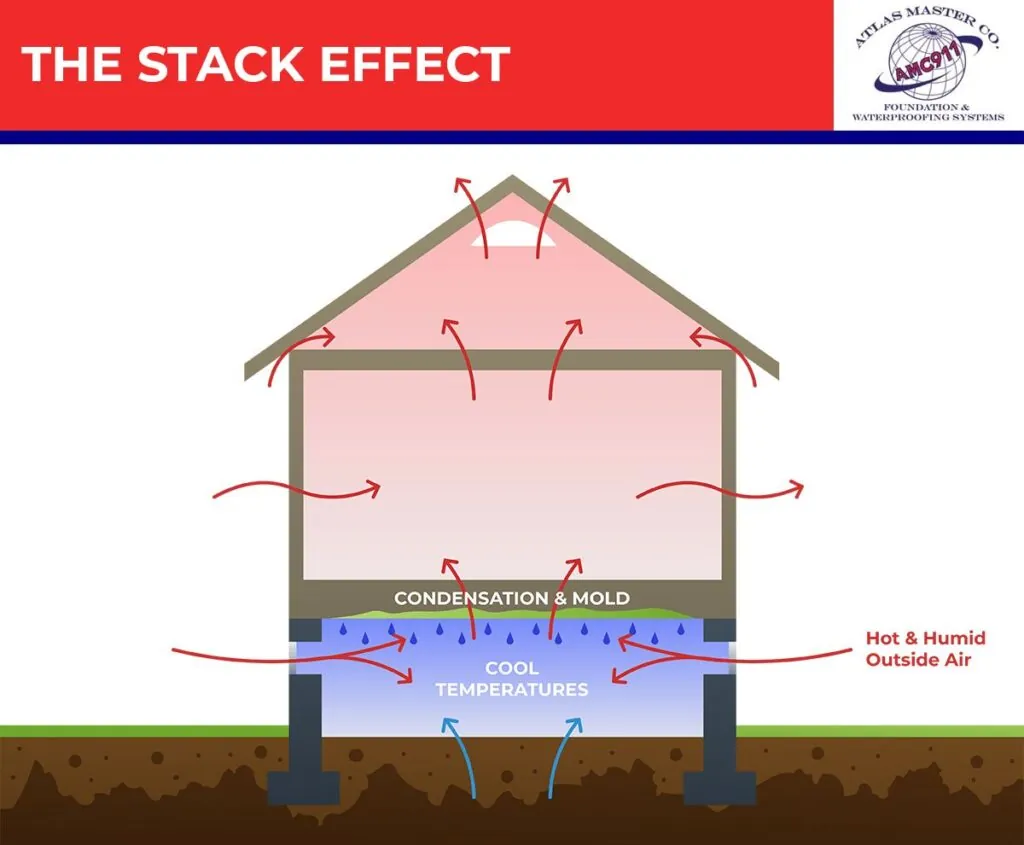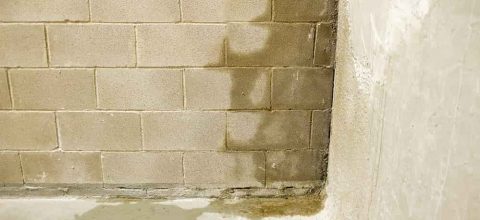Water leaking into the basement after heavy rain is pretty common. However, that doesn’t mean you should put up with it. It’s a sign something is wrong.
Basements tend to get wet because they’re underground. If the soil surrounding the basement walls is saturated with excess water, it will find a way inside. It is possible, though, to stop water from leaking into your basement after heavy rain, and that’s what we will discuss in this article.
We’ll go over the causes of basement leaks, how to stop water leaking into the basement after heavy rain, and more.

What Causes Basement Leaks After Heavy Rain?
Hydrostatic pressure is the most common reason for water leaking into a basement after heavy rain. Hydrostatic pressure builds up in the soil outside your basement walls when there’s excess moisture in the soil that can’t drain off. This pressure is powerful enough to push water through invisible cracks in the basement walls and floor, cracks you didn’t even know were there because they’re so small. So, imagine what hydrostatic pressure can do to a basement wall that’s already structurally compromised. Hydrostatic pressure can even cause foundation walls to bow inward and crack. Concrete block foundation walls are especially susceptible to cracking and bowing because of hydrostatic pressure.
Other ways water can get into your basement after heavy rain include…
- Window wells – Drainage problems in window wells can cause water to build up in the well. If this happens, the water will find a way into your basement. Do your basement walls have water stains on them around the windows?
- Cove joint – Water can also seep into the basement through the cove joint. This is where the basement wall and the floor meet.
- Cracks in concrete block foundation walls – If the wall is already structurally compromised, it will be that much easier for water to find a way into the basement through the wall.
- Shrinkage cracks in a poured foundation wall – Shrinkage cracks are common in poured foundation walls. While they won’t affect the structural integrity of your foundation, they can allow water to seep through them into the basement, especially if there’s a build-up of hydrostatic pressure in the soil outside the basement wall.
For more information see, Is Water in a Crawl Space After Heavy Rain Normal?
How To Stop Water Leaking Into Basement After Heavy Rain
You can stop water from leaking into your basement after heavy rain by controlling groundwater around the foundation. In other words, you don’t want a situation where water can build up in the soil around the foundation without having a way to drain off. Good drainage is the key to preventing water from leaking into your basement after heavy rainfall.
Here are a few ways to improve drainage around your foundation:
- If necessary, re-grade your yard – The yard around your home should slope away from the foundation. If the yard slopes toward the foundation, water will drain toward your basement walls.
- Clean your gutters regularly – Clogged gutters will cause water to spill over the side of your home and into the soil next to the foundation.
- If your downspouts are too short, install extensions – Downspouts shouldn’t be dumping water next to your foundation. If they are, install extensions, so the water is carried at least 10 feet away from your foundation before being released.
- Make sure your window wells have good drainage – You might also want to use window well covers.
- Don’t plant vegetation next to the foundation – Shrubs and flowers might look nice, but when you water them, you’ll just add water to the soil around the foundation. This is what you’re trying to avoid.
- Make sure any shrinkage cracks in your basement walls have been sealed – Shrinkage cracks in a poured foundation wall are usually vertical and hairline. While they don’t affect your home’s structural integrity, they can allow water to enter the basement.
- Install a drain tile system, exterior or interior – A drain tile system is, without a doubt, the best way to control groundwater around a foundation. A drain tile system prevents excess water from building up in the soil around the foundation. There are two types of drain tile systems, exterior, and interior. Both are easy to install when building a house. However, they can also be installed in existing homes.
Why You Shouldn’t Ignore Basement Leaks
You don’t want to ignore a basement leak because it could lead to a costly repair. If water leaks into your basement after heavy rain because hydrostatic pressure has built up in the soil outside the foundation wall, you will have a much bigger problem on your hands if you don’t relieve that pressure. Eventually, the wall will start to bow inward and even crack. This is significant structural damage and will mean an expensive repair. You don’t want things to progress that far.
Basement leaks can also cause mold growth. Now, you may think this isn’t that serious if the basement is unfinished and only being used as a laundry room. The problem is that some of the basement’s air flows into your home’s living area via a phenomenon known as the stack effect. If the air contains mold spores, it can cause allergies and respiratory problems for anyone living in the home. You want your home’s basement to be clean and dry.

Some homeowners think basements are destined to be damp. This isn’t so. If you install a drain tile system, re-grade your yard, clean your gutters, use downspout extensions, etc., your basement will remain dry even during heavy rainfall.
If you’re having trouble with water leaking into your basement after heavy rain and you’re in our service area in Hampton Roads and the surrounding areas in Virginia, contact us today for an inspection.














